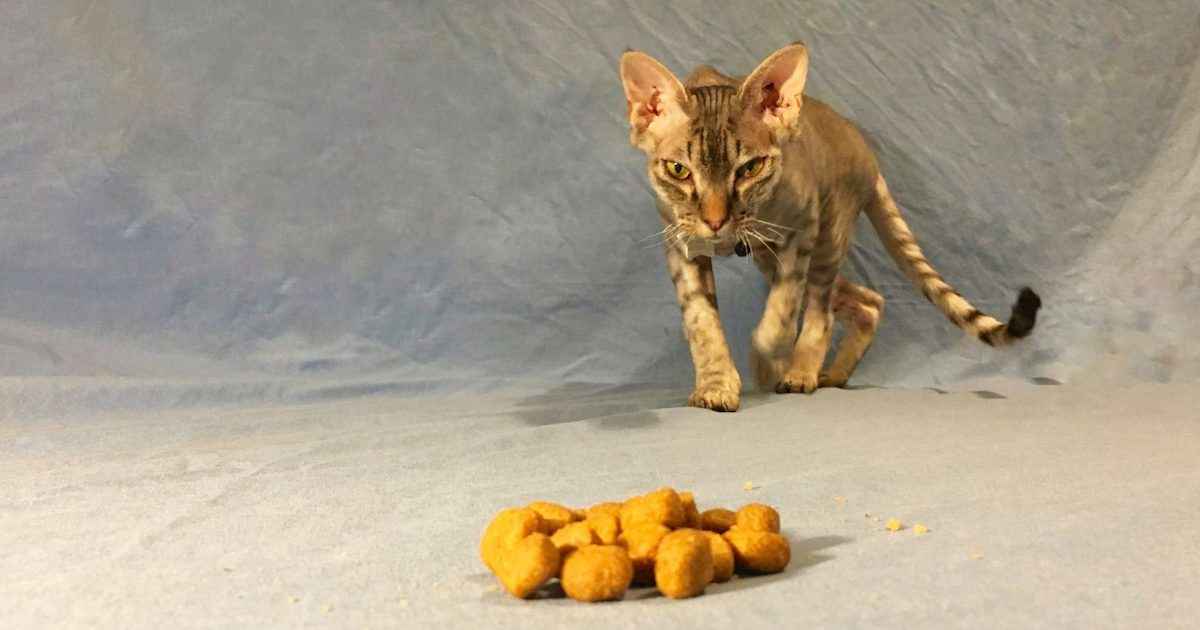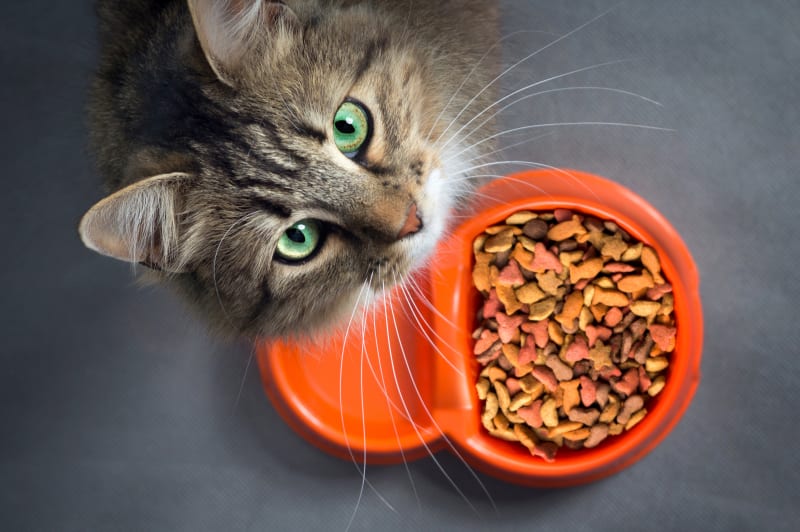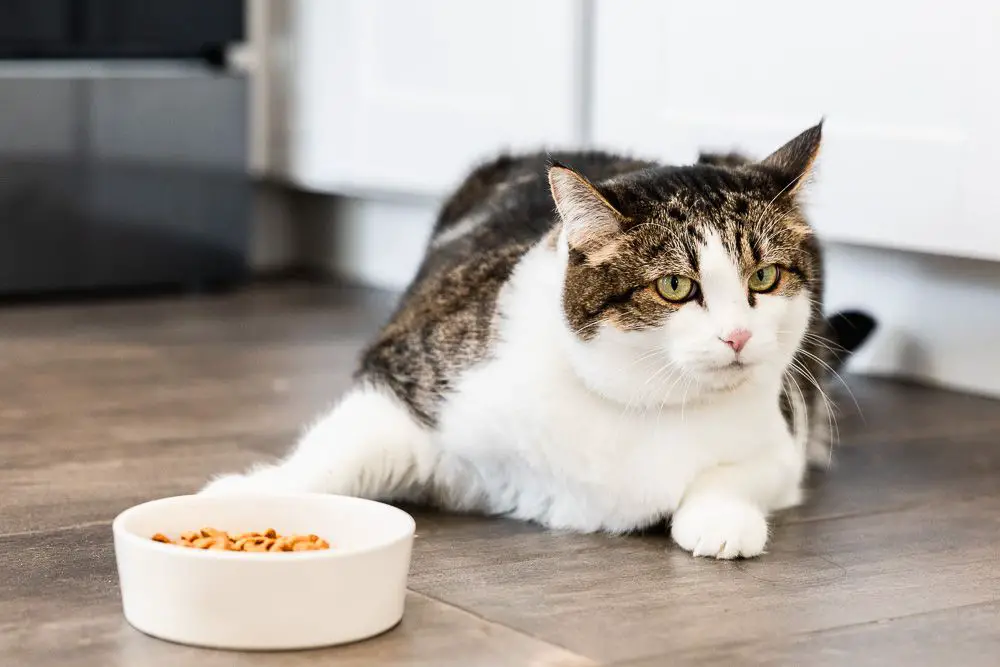It can be worrying if your cat won’t eat, as proper nutrition is essential for their health. There are several reasons why a cat may suddenly lose its appetite. Common causes include stress, changes in their environment, or a recent switch in their food. Cats are sensitive to changes, and even a minor shift in routine can affect their eating habits.
However, loss of appetite can also signal more serious health issues, such as dental problems, digestive disorders, or underlying illnesses like kidney disease or infections. If your cat refuses to eat for more than 24 hours, it’s essential to consult a veterinarian to rule out any medical conditions. Understanding the reason behind your cat’s refusal to eat can help you take the right steps to encourage their appetite, whether through environmental adjustments, offering favorite foods, or seeking professional advice. Let’s explore the reasons and solutions.
Why Your Cat Won’t Eat
Cats can stop eating for many reasons. Understanding these reasons is the first step to helping them.
1. Health Issues
Health problems can make your cat lose their appetite. Here are some common health issues:
- Dental Problems: Tooth pain can make eating difficult.
- Digestive Issues: Upset stomachs can reduce hunger.
- Infections: Viruses or bacteria can make cats feel sick.
- Kidney Disease: Cats with kidney disease often eat less.
- Diabetes: Uncontrolled diabetes can affect appetite.
2. Stress And Anxiety
Cats are sensitive to changes. Stress can make them stop eating. Some common stressors include:
- New Environment: Moving to a new home can be stressful.
- New Pets: Introducing a new pet can cause anxiety.
- Changes in Routine: Altered schedules can upset cats.
- Loud Noises: Noisy environments can make cats anxious.
3. Food Preferences
Cats can be picky eaters. They may not like the food you offer. Here are some food-related reasons:
- Flavor: Cats may dislike certain flavors.
- Texture: Some cats prefer wet food over dry food.
- Temperature: Cats may prefer food at room temperature.
- Old Food: Stale or spoiled food can be unappetizing.
4. Recent Vaccinations
Vaccinations can sometimes cause temporary appetite loss. This is usually short-term.

Credit: www.walkervillevet.com.au
How to Encourage Your Cat to Eat
If your cat won’t eat, try these tips to help them regain their appetite.
1. Consult Your Veterinarian
First, visit your vet. They can check for health issues. They may recommend tests or treatments.
2. Reduce Stress
Make your cat’s environment calm and safe. Here are some ways to reduce stress:
- Quiet Space: Provide a quiet area for your cat to relax.
- Routine: Stick to a regular feeding schedule.
- Playtime: Spend quality time playing with your cat.
- Comfort Items: Offer blankets or toys your cat loves.
3. Try Different Foods
Experiment with different types of food. Here are some ideas:
- Wet Food: Some cats prefer the texture of wet food.
- Dry Food: Other cats may like dry kibble.
- Flavored Food: Try different flavors to find their favorite.
- Warm Food: Warm the food slightly to enhance aroma.
4. Use Appetite Stimulants
Ask your vet about appetite stimulants. These can encourage your cat to eat.
5. Offer Treats And Special Foods
Sometimes, a special treat can tempt your cat to eat. Try offering:
- Canned Tuna: Many cats love the taste of tuna.
- Chicken Broth: Warm, low-sodium broth can be enticing.
- Baby Food: Plain meat baby food can be appealing.
6. Monitor Their Eating Habits
Keep track of what and how much your cat eats. This can help you notice patterns and changes.
When to See the Vet
If your cat isn’t eating, it could be a sign of various health issues. Knowing when to see the vet for my cat’s lack of appetite is important. Generally, if your cat hasn’t eaten for more than 24 hours, you should consult a veterinarian. Loss of appetite can indicate anything from dental problems to more serious illnesses. Consult your vet to diagnose the problem and ensure your cat stays healthy.

Credit: www.advancedcareanimalclinic.com
Frequently Asked Questions
Why Is My Cat Not Eating?
Your cat may be stressed, sick, or dislike the food. Consult a vet for persistent issues.
How To Stimulate A Cat’s Appetite?
Offer wet food, warm it slightly, or try different flavors to entice your cat to eat.
What Should I Do If My Cat Refuses Food?
Check for signs of illness. If refusal persists beyond 24 hours, consult your veterinarian immediately.
Can Stress Cause A Cat To Stop Eating?
Yes, stress can impact a cat’s appetite. Changes in the environment or routine can be significant stressors.
FAQs
Why Won’t My Cat Eat?
Health problems, stress, and food preferences can cause appetite loss.
What Should I Do If My Cat Won’t Eat?
Consult your vet, reduce stress, and try different foods.
Can Stress Cause My Cat To Stop Eating?
Yes, stress and anxiety can affect your cat’s appetite.
How Long Can A Cat Go Without Eating?
A cat should not go more than 24 hours without eating. If they do, see a vet.
Can I Give My Cat Human Food To Encourage Eating?
Some human foods like plain chicken or tuna can be given in small amounts. Always check with your vet first.
Conclusion
Understanding why your cat won’t eat is key. Health issues, stress, and food preferences are common causes. Consult your vet and try different solutions. With patience, you can help your cat regain their appetite.

Hello, this is Frank Swanson, the owner, and operator of Pet Info Hut. I created this website as a way to share my love of pets with the world. I have over 7 years of experience working with animals, and I have a passion for helping people care for their pets. I hope that you find my website useful and informative. Thanks for visiting!
